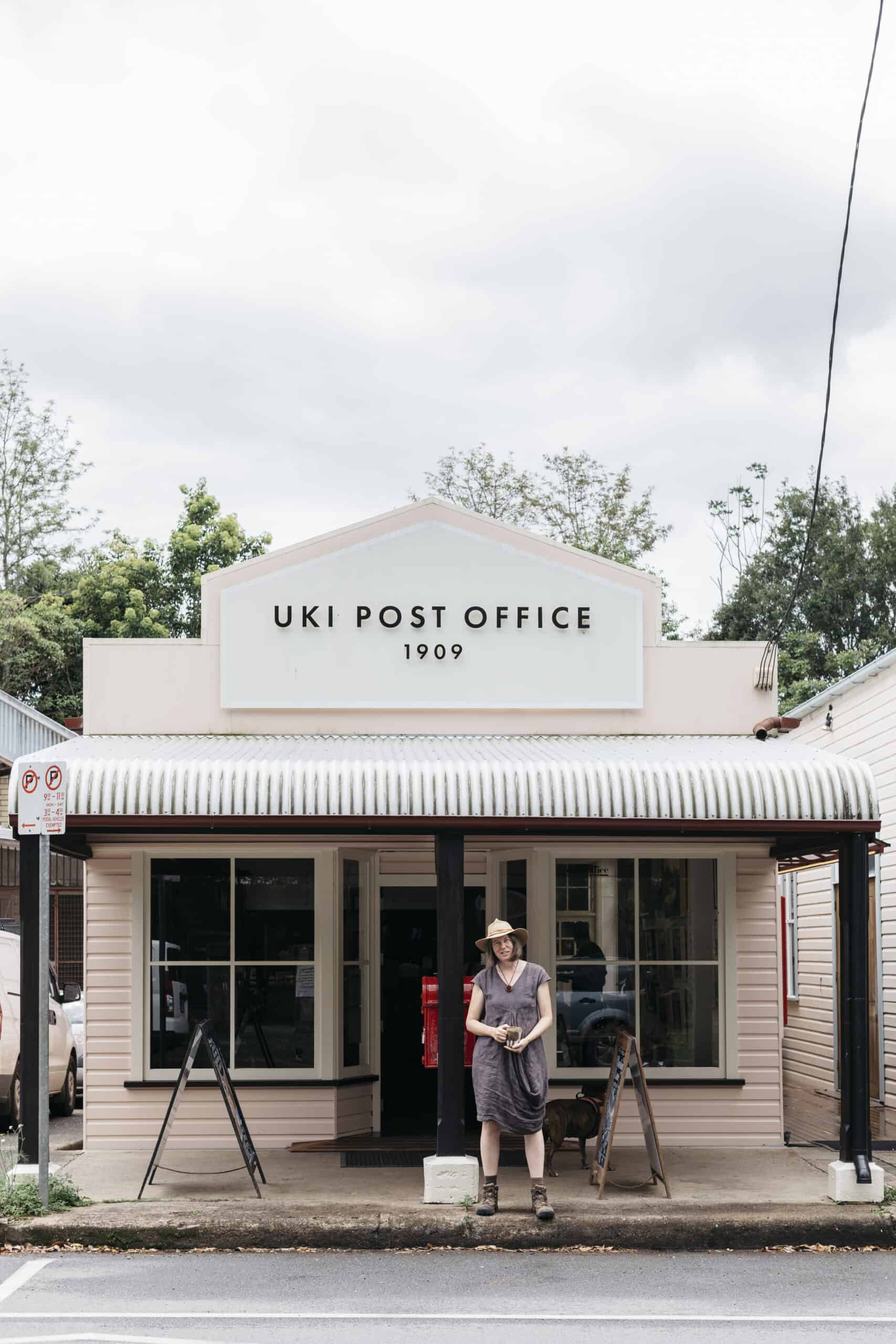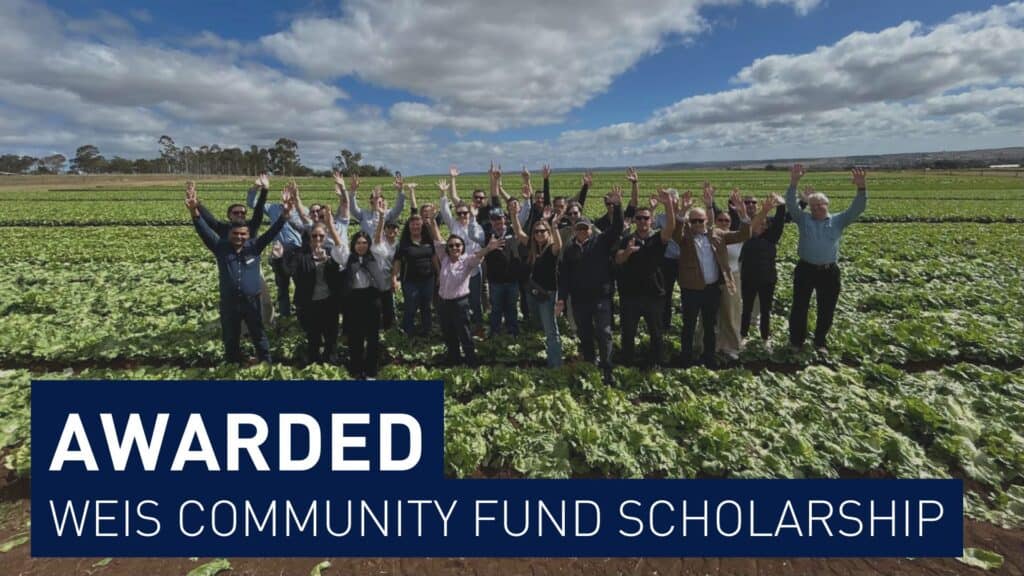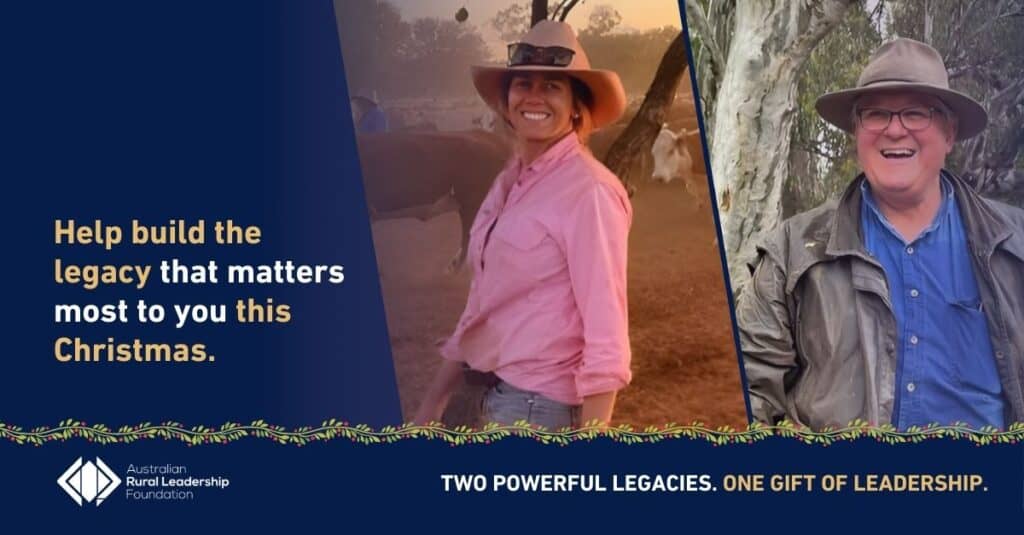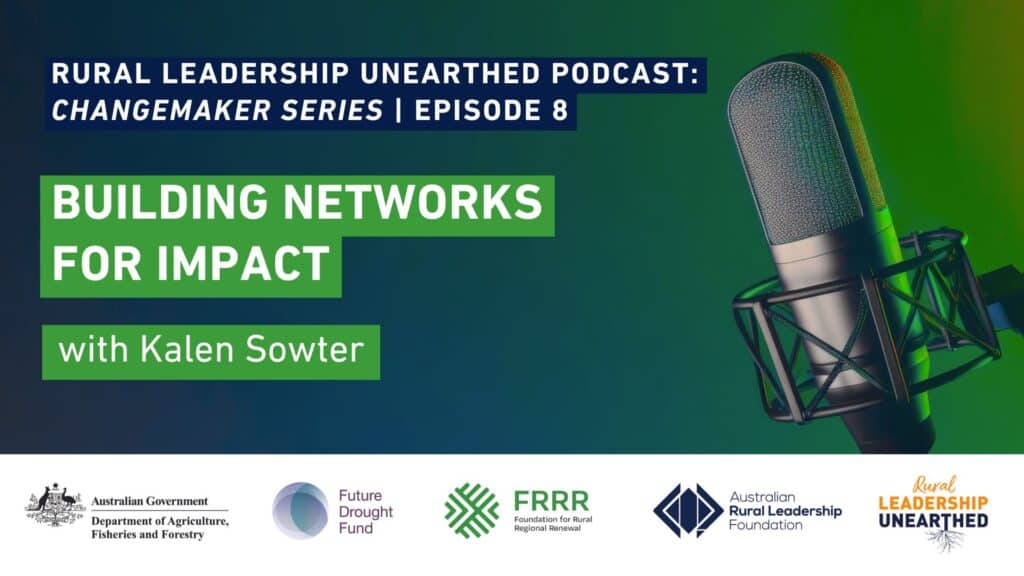If you hadn’t heard of the Northern Rivers region of NSW before February 2022, it’s likely that the horrific floods changed that. While news understandably focused on the 14-metre high floods in Lismore, there was devastation across the entire area.
With such a big recovery process underway, the Northern Rivers was an obvious choice for offering a program focused on recognising that resilience is more than simply ‘coping’ and, instead, encompasses change, readiness and opportunity.
The Leading Australian Resilient Communities program (LARC) is a pilot program delivered by the Australian Rural Leadership Foundation (ARLF) in partnership with Regional Australia Institute (RAI). It was funded by the Australian Government’s $5 million Building Resilient Regional Leaders Initiative, with the aim of supporting regional communities to meet challenges and collectively drive community resilience.
LARC graduates driving community resilience
Put simply, Melanie Bloor has dedicated her life to trying to save the world.
“I did an environmental science degree thinking that if I could just prove the cold hard facts to decision-makers, they’d see sense and change their trajectories,” she says.
Now, at age 50 and with two teenage boys, though her rose-tinted glasses have faded, she is even more invested in our planet’s future.
“I believe climate change is upon us,” she says. “So I moved into building resilience at a local level.”
Melanie is the President of Resilient Uki, or RUKI for short, a not-for-profit association group focused on supporting the area to prepare for, respond to, and recover from emergencies, disasters and crises.
Greater Uki makes up around three-quarters of the Tweed Shire and is home to 3,000 people. Mel reflects how it wasn’t just flooding that impacted the region in early 2022.
“It was a flooding and landslip event. There were over 200 landslips in our little area and some were seriously half the side of a mountain.”
This meant that isolation was the biggest issue for those impacted, not only in the days following but for weeks and even months.
“Our main road was washed down the river and we had no phone, no mobile, no internet, no electricity and no town water for weeks,” Melanie recalls. “The normally easy five-minute drive from my house into town meant tackling a crossing that had washed away, and a massive landslip.”
Finding herself as a go-to person, Melanie gave herself the title of ‘Mumma Bear’ and got stuck into tasks ranging from feeding people and dispatching donations to tasking out-of-town volunteers and, when they arrived, directing the defence forces. As time went on, she started fuelling her passion for community resilience into preparation for the next disaster, whether that is flood or fire.
Melanie joined the LARC program because she realised her community was looking to her for advice on what to do next.
“And so, as a de-facto leader – Mumma Bear – I thought it was good to skill up,” she says.
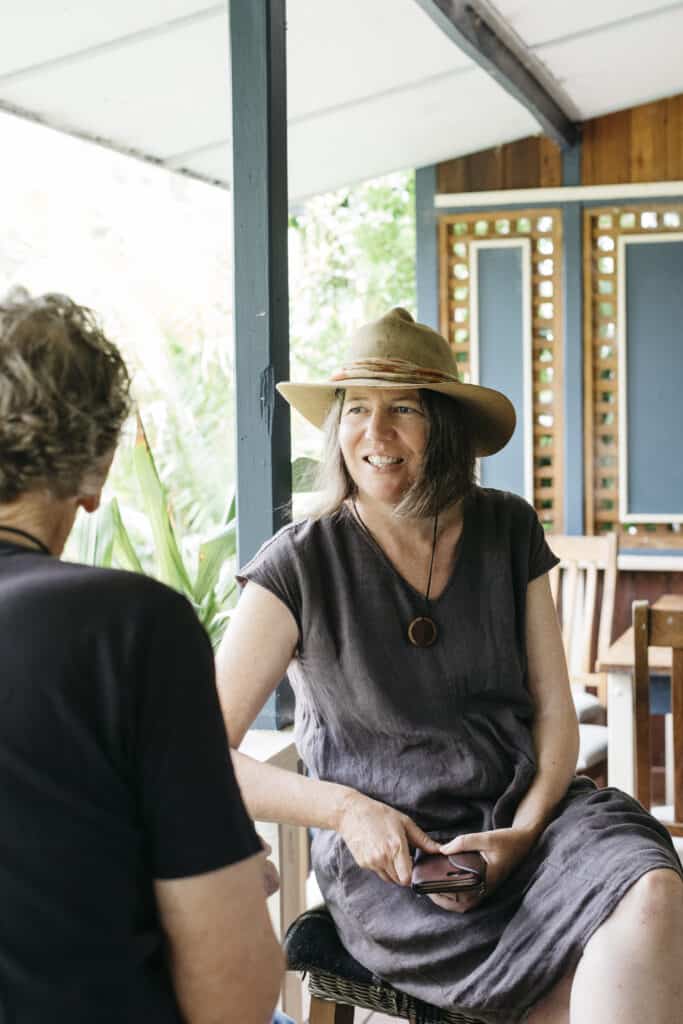
Anne Leitch was one of Melanie’s 16 fellow leaders on the LARC program. Her current paid work is as a Research Fellow at Griffith University for Coast Adapt, gathering information relevant to sea-level rise. Her CV is impressive, with qualifications in marine biology and 20 years working at CSIRO before a tree-change around 20 years ago brought her to Bangalow, a town in the Byron Shire hinterland.
Equally impressive is her volunteer work for the Bangalow’s Country Women’s Association (CWA), which she joined three years ago.
“People think the CWA just bake and knit but they’re primarily a progressive women’s lobby group that brings together people from different backgrounds,” she says. “I always say CWA stands for Capes With Attitude!”
Anne’s experience in community resilience prompted her to get involved in extending the CWA’s desire for disaster recovery planning into bigger-picture capacity.
“I like to think about community resilience as the ability to withstand shock, adapt, learn and self-organise,” she says. “It’s powerful to think about using the everyday to plan for the ‘someday’.”
Though she’s never sought to be seen as a leader, Anne knew the LARC program held a more nuanced view of leadership that fitted with her understanding.
“Leadership is often confused with people wanting to be in charge,” she says. “I want to support meaningful action.”
Anne applied for the LARC program as soon as she saw it was bringing local leaders together.
“Because the floods had just happened, it was a really good opportunity to build a local network, which is so important in recovery,” she says.
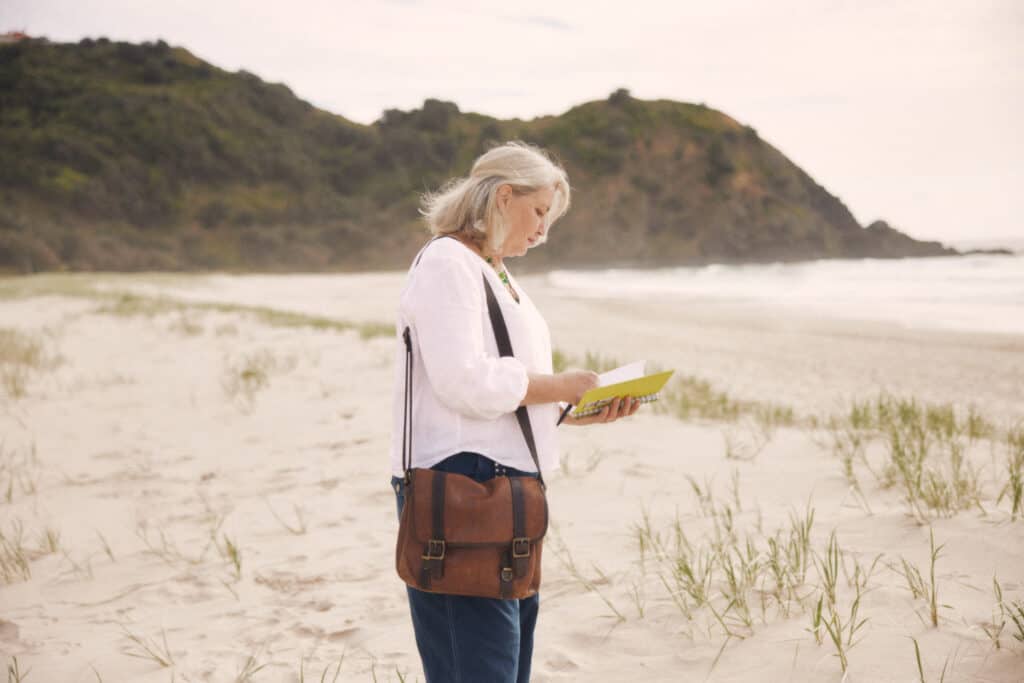
Singing the positive impact of LARC
Melanie is one of those people who throws herself in fully whenever she sees a need. So, an unexpected benefit of attending the LARC program, which was run via two intensive sessions held in October 2022 and February 2023, was some time away from the frontline.
“Signing up to LARC was a big commitment at a very busy time,” she says. “But the first live-in intensive was my first weekend off since the floods, so it felt like a break!”
The next positive was the connections Melanie made, both with other participants and program facilitators.
“There were people there who were homeless after being flood affected, people with PhDs and in positions of power who weren’t directly affected, and everyone in between,” she says, noting how much of an impact this diversity of participants created.
“When it comes to resilience, a lot of people are emergent leaders and I represented that group.”
Melanie feels she was already onto the idea that leadership is about action, not position.
“As I’ve always taught my children, in order to get, you first must give,” she says. “I love leadership as the idea of enabling leadership in others, rather than telling them what to do.”
The program also helped reinforce to her that preparation is key, even if this is the ‘unsexy’ part of disaster resilience.
“When another event happens, if you’ve planned, you can press ‘play’ on the tape rather than start to gather your instruments.”
One life-changing aspect of the program was learning about the Adaptive Cycle; the process that communities naturally go through after a disaster.
“That was totally new and totally relevant,” says Melanie. “We were still in the honeymoon stage when I learned about the cycle so it helped me be mentally prepared for the fact that things might get worse before they get better. And to understand that a ‘down’ doesn’t necessarily mean it’s going to be down for ever.”
For someone who volunteers for as many hours as they can manage, this knowledge is far more than academic.
“This understanding has really helped me sustain my effort,” Melanie says. “I understand that there will be natural ebb and flow of enthusiasm and commitment from people, including myself.”
For Anne, the LARC program also reinforced ideas she held about leadership.
“Leadership is often confused with people wanting to be in charge, however I’ve always seen leadership as a service,” she says. “This region has always had a strong social and environmental conscience, so leadership is about supporting others and ensuring fairness and equity.”
Meeting others in the program was also a key moment for Anne, who is in her 50s.
“This was particularly powerful because the people I was meeting had gone through such big stuff – including losing homes and businesses – but they still had the bigger picture of helping community in mind.”
Sharing the love through leadership
Anne and Melanie joined forces, along with two other participants, on their Community Action Project, an aspect of LARC that sets up small groups to focus on a complex issue in a collaborative way. While many LARC participants create a new project based on data-driven needs, Mel and Anne realised they and their communities would benefit from a more unique approach. That is, by bringing various organisations together to share knowledge, skills and resources, they would support each other towards common goals.
Not only were they fully committed with existing community-resilience projects, they wanted to capitalise on the powerful networking and connection-creation that was a key outcome of their participation in LARC.
“I call our project Sharing The Love as, essentially our Community Action Project is supporting each other in all our community work,” says Melanie.
Anne agrees: “We’re all already doing big things in our community, so our project is supporting each other to do it all better.”
Extending and deepening the connections made during the LARC program have huge personal-resilience benefits for Melanie and Anne as individuals as well as flow-on effects through their communities, which share similar challenges.
“It’s resulting in a more joined-up community,” explains Anne.
One way their LARC project is sharing the love even more broadly is through Melanie presenting on the national stage, supported and encouraged by Anne’s expertise within the world of academia.
“I’ve spoken at four conferences and am about to speak at another,” says Melanie of the list that includes the Australian Disaster Resilience Conference. “I speak about the need to look out for others, not silo your wisdom, and enable everyone.”
Melanie is also stoked to be listed as the first author of a scientific paper published in the Australian Journal of Emergency Management.
“Having academic friends from LARC helped me feel that this was something I could do,” she says. “LARC has helped me feel more confident.”
Hearing from the community
Though positively impacting leaders is one aim of the LARC program, the ultimate goal is to create change within communities.
Jo Palser lives on a macadamia-growing property outside of Bangalow and, at age 68, has held a suite of community volunteer roles, including with the Byron Community College and a program for survivors of sexual assault. Currently, she is the Social Issues Officer for the Bangalow CWA.
“Anne hides her light under a bushel,” Jo says of her community colleague. “And she’s one of the busiest people I know!”
Anne first came to Jo’s attention when she stepped up to talk about the LARC course and how what she’d been learning could apply to the CWA’s interest in planning for future disasters and creating community resilience.
“Having Anne as a contributor and co-facilitator is fantastic,” she says.
“By enabling leaders like Anne, the LARC program plants so many seeds, both within organisations and across networks of organisations. That’s an incredible benefit at the micro-level for people who wouldn’t ordinarily get funding or come to prominence.”
Jo can also see the strength being created through Anne and Melanie’s Sharing The Love project.
“They’ve got the ability to see what’s happening across our whole region and connect us to each other,” she says. “As a result, our consciousness about communication and connection has grown and we’ve started to build relationships to help us self-organise. I know now that if a disaster event happened, I could pick up the phone to arrange resources.”
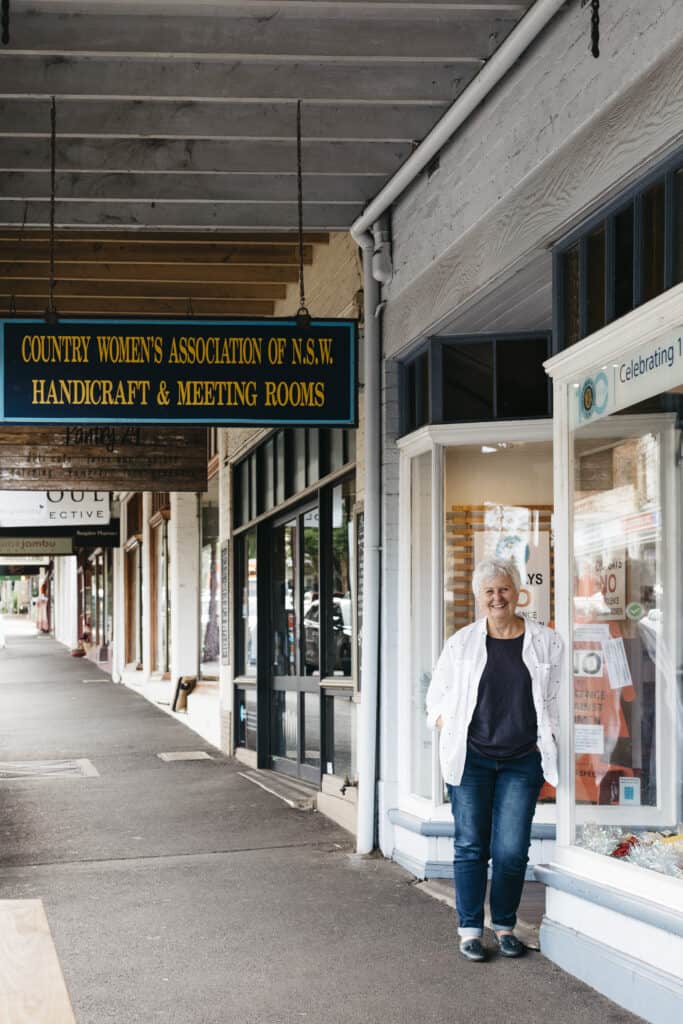
Geoffrey Colwill is the Treasurer of RUKI, which always aims to be an agile organisation. Now in his early 70s, Geoffrey has lived a full life with careers in real estate and accountancy, living in spiritual communities, participating in AIDS advocacy, piano teaching, being a father to two teenage boys, and always finding time to enjoy sailing.
“Melanie is a driven, inspirational and enthusiastic community member who puts lots of energy into making the world a better place,” he says before going on to talk about the benefits he’s seen of the LARC program both for Melanie and for the entire Uki region.
“She’s been really supported by meeting peers,” he says. “Overall, the program has given her more solidity and sustainability, partly through having a bigger perspective and partly though her focusing on fostering leadership in others rather than taking the role on fully herself.”
Geoffrey goes onto note that the challenges facing community champions like himself and Melanie are never-ending, meaning that continual self-reflection and support is essential.
“We need people who can drive change and blend this with skills in collaboration. Thanks to LARC, Mel is helping the core team work with community in a way that makes things happen on the ground.”
The future for the Northern Rivers is filled with uncertainty given that it’s not only flooding that’s a risk but fire and extreme weather events like East Coast Lows. What is certain is that LARC has facilitated connections both within and between communities, which will be a source of great strength in times to come.
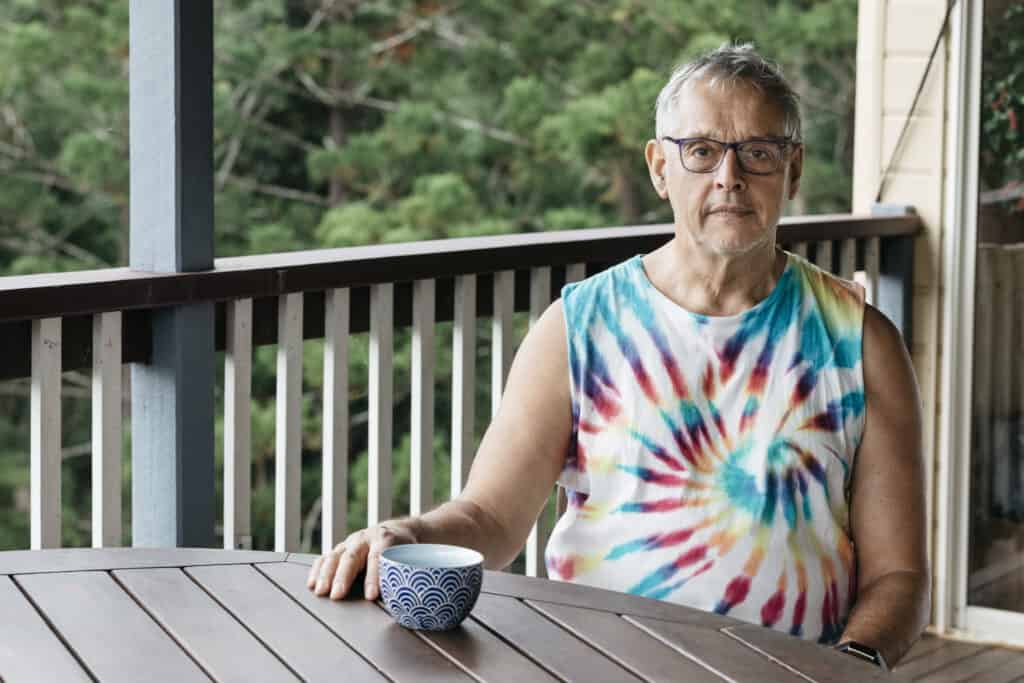
Written Vivienne Pearson, photography by Katrina Parker, videography by David Child: a Rural Room collaboration


